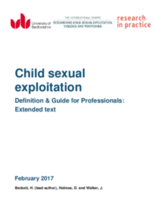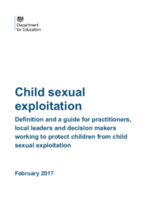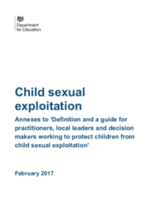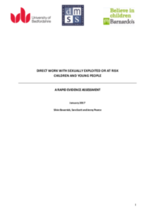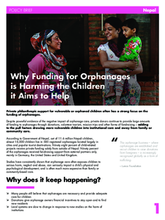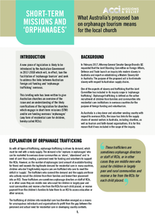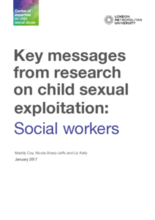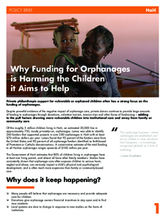Displaying 241 - 250 of 469
The document outlines the new civil definition of child sexual exploitation, developed by the Home Office and DfE, together with an overview of our current understanding of the issue and an evidence-informed set of principles for responding.
The advice presented in this report is non-statutory, and has been produced to help practitioners, local leaders and decision makers who work with children and families to identify child sexual exploitation and take appropriate action in response.
This collection of annexes accompanies the publication entitled ‘Definition and a guide for practitioners, local leaders and decision makers working to protect children from child sexual exploitation.’
Delphine Moralis discusses the 10,000 refugee children that have gone missing in the EU.
This review is intended to provide Barnardo’s with an overview of what ‘direct work’ with young people entails in the context of CSE.
This infographic from the Elevate Children Funders Group describes how private donors add to "the pull factors drawing more vulnerable children into institutional care and away from family or community care" in Haiti.
This policy brief from the Elevate Children Funders Group describes how private donors add to "the pull factors drawing more vulnerable children into institutional care and away from family or community care" in Nepal.
This briefing note has been written to give Australian churches an overview of the issue of orphanage tourism and an understanding of the likely ramifications of the legislation for churches.
This briefing paper is for social workers. It brings together key messages from research on child sexual exploitation with implications for practice and should be read in conjunction with guidance for professionals.
This policy brief from the Elevate Children Funders Group describes how private donors add to "the pull factors drawing more vulnerable children into institutional care and away from family or community care" in Haiti.

